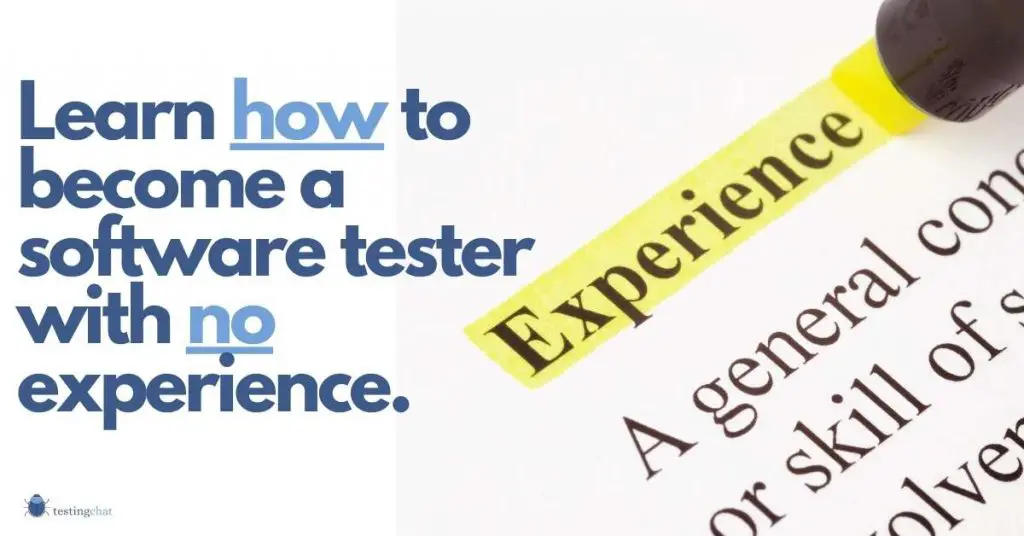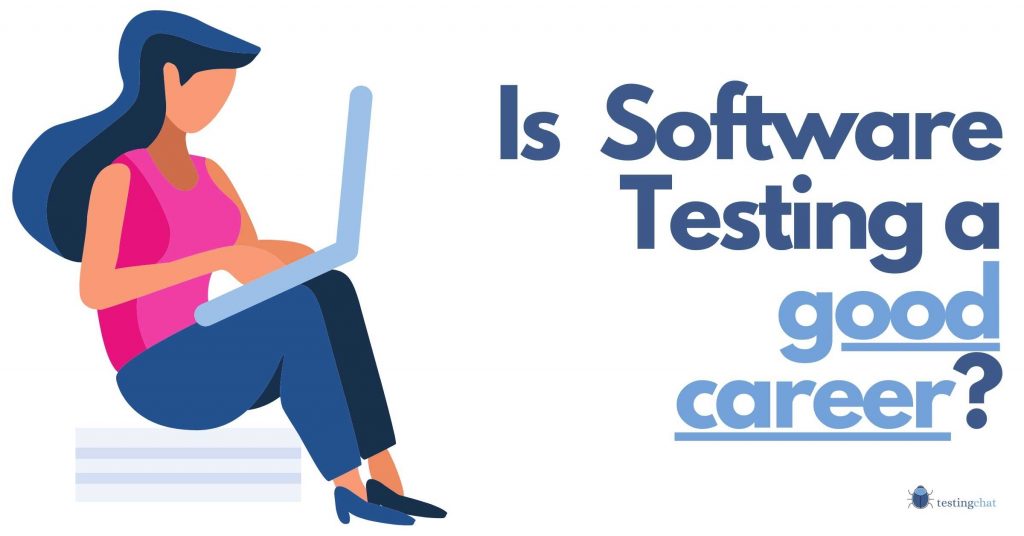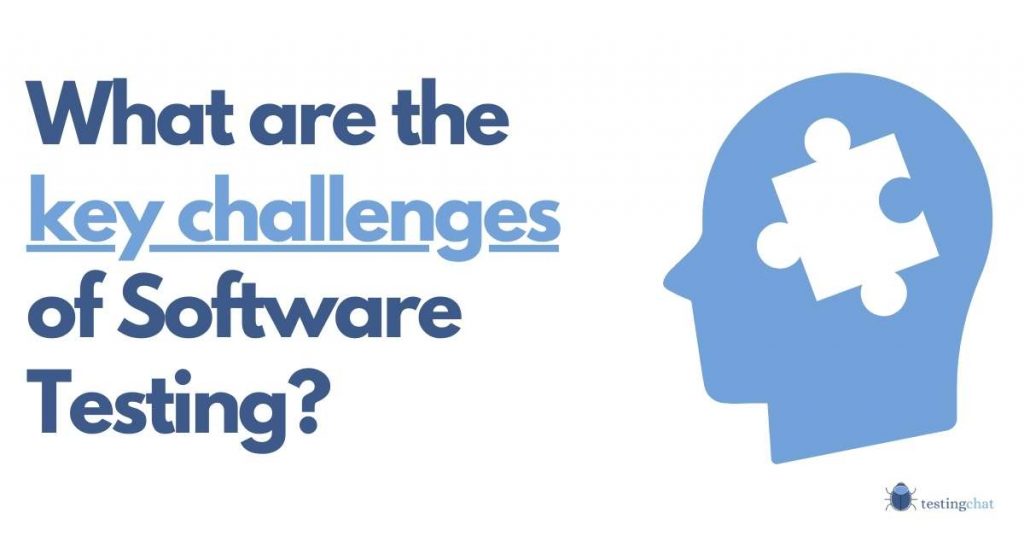So you’re thinking about a career as a Software Test Analyst?
The question is, do you even know what one does?
I was a Test Analyst for many years before I moved up the ladder into more senior positions such as a Lead and then into Test Management.
The days of being a Test Analyst seem like only yesterday.
I miss them.
They weren’t easy at first but you learnt a lot and this is where you’ll learn your trade.
There were tons of fun times too.
What I’m going to try and do is break down what I think a Software Test Analyst does from my experience.
Others may have their own opinions but this is mine.
I’m not going to write yet another job description.
You can read those on plenty of job sites.
I’m going to give you a taste of what Software Test Analysts do on a day to day basis.
I’ll try and decipher what some of the roles and responsibilities mean.
You might also be interested to know what is involved in software testing.
Table of Contents
What is a Software Test Analyst
So before we start, lets try and understand what a Software Test Analyst is;
My definition would be;
A Software Test Analyst is someone who follows a process of running tests to ensure a software application is fit for purpose against its requirements. – TestingChat.com
So what does that mean?
It essentially means that you’ll be given a set of requirements that will tell you how a system is supposed to behave.
In a nutshell, your job is to prove that the application is adhering to these requirements and behaving as expected.
You’ll then take these requirements and create tests from them.
Tests can either be positive or negative.
You want to make sure that the application is behaving as expected and is fit for purpose prior to going live into PRODUCTION (the end user environment).
The more complex the application, the more complex tests you may have to run.
As well as running positive tests, you’ll want to run some negative tests to essentially try and ‘break’ the system to see how it handles it.
Ensuring a system is resilient is also part of your role.
Roles and Responsibilities of a Software Test Analyst
As a software tester, you’ll be required to do a number of things.
It totally depends on your organisation and what they want you to do.
In my former years as a Test Analyst, I’ve had varying roles.
In some roles, I’ve sat in a corner writing manual test cases and not speaking to another soul (except my Test Manager).
Other times, I’ve had to initiate and kick off projects and see them through to the end. This meant taking care of all documentation, stakeholder management and managing resources across several time zones.
I had to be the life and soul of the party, a cog in the wheel, that sort of thing.
Like I said, it varies.
If you’re a freelancer or a consultant it can be even more different.
A Software Test Analyst typically undertakes the following activities;
- Proving the requirements of a software application under test (AUT).
- Planning testing activities
- Translate specifications into test conditions
- Design and executing test cases
- Report results
- Stakeholder Management
- Defect Management
- Everything in between
The above points are just a guide. You may do more or less.
A Software Test Analyst’s Job Description
A Test Analyst’s job isn’t the same across the board so its really hard to pin down a solid job description,
However, the previous section will give you a really high level understanding of roles and responsibilities of what a software Test Analyst does.
Also, an organisation may also include a bit about itself, environmental setup, tools etc.
It’s really hard just to give you a generic job description.
What Qualifications do Software Test Analysts Need?
To get into Software Testing, there aren’t any formal qualifications that you need.
For old school testers like myself, there’s a saying that ‘we weren’t always testers’. This is actually true.
I’ve worked with people from all kinds of backgrounds. One of my colleagues had a degree in Microbiology at a prestigious UK University and was a really good Test Manager.
Another colleague, in fact a boss of mine, has a MBA and had over 140 people report into her.
Some of my other colleagues left school without any qualifications and have very successful careers in Software testing.
Some, come from a purely IT background.
However, if you’re new to software testing and want to get a head start, there are a few things I can recommend.
Whenever I review CV’s, there are a few things that jump out to me immediately.
- Experience
- Professional Testing qualifications
If you’re new to testing, testing experience might be non existent. That’s ok. If you’re transitioning from another industry, I’ll look at your previous roles and any transferable skills you can bring.
With regards to the professional qualifications, the ISTQB or any testing related qualification is usually one that stands out for me.
If you have a foundation certificate then this gives me a level of confidence that you know the basics.
I’ve worked with people who have many years of experience but lack knowledge of some key best practices.
If you can, acquire the ISTQB foundation certificate as I believe this is the absolute minimum industry benchmark.
Having a degree or coming from an IT background is a nice to have. But honestly, I dont think it’s something I would consider as a priority. All it tells me is that you’re educated to a particular level.
It doesn’t make you a good tester.
Other things that interest me are professional qualifications for Agile, Test Automation and a Project Management certification.
For example a Prince2 or PMP foundation.
If you’re a student about to graduate or in the early years of your career, try and get yourself some work experience and invest in the courses mentioned above.
They’ll pay dividends later.
How to become a Software Test Analyst
It depends!
If you’re at the start of your career and want to consider software testing as a profession, go for the ISTQB foundation course.
That will give you a really good basic grounding of testing and will get you noticed.
If you’re working in an IT company then maybe speak to your colleagues in the Test Team for any openings.
Another method is to maybe shadow someone in the test team outside of your normal role to see how they work.
I’ve seen this work well in many other disciplines such as Project Management.
Key Skills you will need as a Software Test Analyst
Being a software test analyst requires a number of skills. This is NOT just about sitting behind a desk writing tests.
Being a tester requires a specialist and wide range of skillsets.
Tangible Skills Software Testers Require
- Being methodical
- Empathetic
- People management (ideally a sense of humour)
- Time management
- Being a leader
- Clear and concise communication in various forms
- Being organised
- Listening skills (this is incredibly important)
- Being able to absorb a lot of information in a short space of time.
- Being able to regurgitate that information and relay that to colleagues.
Non Tangible Skills Software Testers Require
- Dynamic
- Articulate
- Thick-skinned
- Being able to take criticism
- Being able to criticise and be vocal
An example of What you will you be doing on a typical day
I can write down lists for you all day long. However, giving you an idea of how your day will look might also help.
No two days are the same as a Software tester which is why it can be quite an interesting and exciting career choice.
Using the ISTQB methodology, I’ll try and break down what you might be doing
First things first, don’t forget your favourite morning coffee or beverage, I usually need that to get in the right frame of mind and mood :).
What’s funny is I absolutely hate coffee. However, whenever I’m in the office, my routine is to grab an extra hot latte from Pret and a sandwich.
They know me so well that I usually get a free Latte a few times a month.
Well, that was before the pandemic anyway.
Test Planning and Control Phase
This is the initial stage of the project. You may be expected to do the following;
- Have project kick off meetings with your Project Manager and various stakeholders to understand the project.
- Understand the high level testing scope of the project
- Create a high level testing schedule to provide to your Project Manager
- Create a project Test Strategy and go through the review cycle process.
If you’re a senior Test Analyst, then you may be required to work on creating documentation and possibly work on project resourcing.
Analysis and Design Phase
At this stage you’ll be conducting most of the pre-testing work.
You may be required to do the following;
- Start to review the requirements and specifications in greater detail
- Create a Requirements Traceability Matrix (RTM).
- Create test scenarios
- Design test cases.
- Create test data
- Have walkthroughs with Business Analysts, business users and third party vendors to understand the application under test.
- Prepare a Test Plan
- Chasing up technical teams to ensure the environments are ready for testing
- This will include ensuring that accounts are ready with the correct permissions.
- Setting up your project ready for reporting.
- If you use an automated reporting tool then you’ll be getting that ready at this stage. For example, ALM, JIRA, Rationale or even Excel sheets.
Implementation & Execution Phase
This is the stage where you roll your sleeves up ACTUALLY test the system.
You’ll most likely be required to do the following;
- Run tests
- Record tests and update the test plan to reflect the test status.
- Provide regular testing updates to project stakeholders
- Track progress against timelines. E.g. are we on track or going to slip?
- Raise defects
- Manage defects
- Have a few heated ‘debates’ with developers
- Retest failed or blocked test cases.
What you’ll do at this stage will be totally focussed on executing tests. That’s the primary goal here.
HOW you execute the tests will be down to what you’ve specified in your Test Strategy document.
You’ll probably also learn a new phrase that developers tend to use;
“its not a bug, it’s a feature”.
More on that another time.
Evaluating Exit criteria & Reporting Phase
Once you’ve completed your testing, you’ll be ready to report on your findings to your project stakeholders. You’ll most likely;
- Compile a Test Exit Report for project stakeholders
- Attend a Go/No call for the next stage or PRODUCTION deployment.
This stage will essentially complete your test execution activities and ready for the next stage.
All eyes will be on the Test Team at this stage and your report will be crucial in making a decision for the next stage.
The expertise and recommendation of the Test Team will be crucial here.
Test Closure Activities Phase
This is one of the most underrated parts of the software testing project lifecycle.
You’ll most likely;
- Provide feedback on areas where you feel went wrong or could be improved.
- Take part in ‘lessons learned’ meetings.
This stage is where you’ll have a chance to put your views across on what went wrong and how to make improvements.
Unfortunately, not many companies (at least in my experience) take the opportunity of this stage.
I’ve also found that a lot of people don’t truly put their feelings across to avoid any repercussions from colleagues.
At each of the above stages, there will be engagement with stakeholders.
This could be your line manager but in most cases this will be your Project Manager and wider teams.
This stage is a fantastic opportunity to work on building resilient processes and help to overcome issues on future projects.
If you have the opportunity to take part in lessons learned meetings then grab it with both hands.
Summary and Wrap Up
I hope this article gives you more of an insight as to what a Software Test Analyst does.
It can be a very exciting role with no two days being the same.
One moment you can be kicking off a meeting and the next you could be rolling your sleeves up in the thick of it.
Working in the software testing industry is a VERY good profession and opens up many different opportunities.
Does being a Test Analyst interest you?
Have I answered your questions?
What are your thoughts?
I’d love to hear them.
Please let me know.







